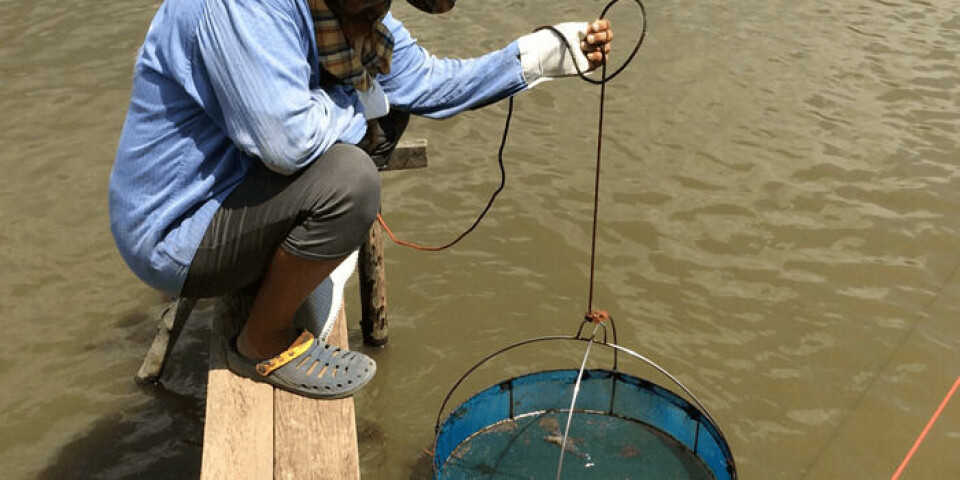
Brits back microbiome project
Cefas and the University of Exeter and are heading a £1.97 million BBSRC-Newton Fund project to develop and apply new molecular biology techniques to reduce the impact of major diseases in aquaculture for small-scale farmers in India, Bangladesh and Malawi.
In this project environmental DNA (eDNA) methods will be applied to help understand the microbiome (assemblages of microbes and pathogens) in fish and shellfish culture ponds, and within the organisms themselves, in order to develop early warnings of diseases and for avoiding disease outbreaks in low income countries where food is scarce. A central theme is the alignment of the efforts of farmers, health professionals, researchers and national authorities to help prevent disease outbreaks.
Professor Charles Tyler, of the University of Exeter, who will lead the work, said: “This grant provides a wonderful opportunity for us to combine our molecular skills in Biosciences at Exeter, with the expertise in disease diagnosis, pathology, and eDNA at Cefas, to better understand how the microbiology within culture ponds relates to health status and disease outbreaks in key crop species (shrimp and finfish) in India, Bangladesh and Malawi. We will use the data to develop models for predicting the drivers of disease outbreaks that can be applied to allow for measures to reduce or prevent crop losses for farmers."
Dr David Bass, lead at Cefas, said: "Cefas are leaders in research and development seeking to safeguard global food security and thereby support vulnerable communities. As part of this project we aim to develop simple and accurate early-warning molecular-based tools for use by farmers enabling them to pre-empt and avoid the impacts of disease events.
"In this project we will engage and train farmers in accurate disease diagnostics and establish communication and training networks that will disseminate the outputs of the project as widely as possible. In order to achieve this we will use cutting-edge microscopy and molecular tools to understand the microbiome of aquaculture ponds and how this relates to disease outbreaks.”
The project builds on a strategic alliance forged between the University of Exeter and Cefas, led by Professor Tyler and Dr Grant Stentiford (Cefas), to develop a strong research partnership and facilitate knowledge exchange and training between Exeter and Cefas.
Professor Tyler said: “We established an agreement with Cefas five years ago which has jointly funded 10 PhDs studentships and I am delighted to say that we are now extending this agreement for a further five years, with a joint commitment of £800,000 to fund an additional 10 PhD studentships”.
Dr Stentiford said: ‘The new agreement will allow us to grow our expertise collectively to help make a difference particularly in areas such as disease diagnosis and prevention in aquaculture.”




















































